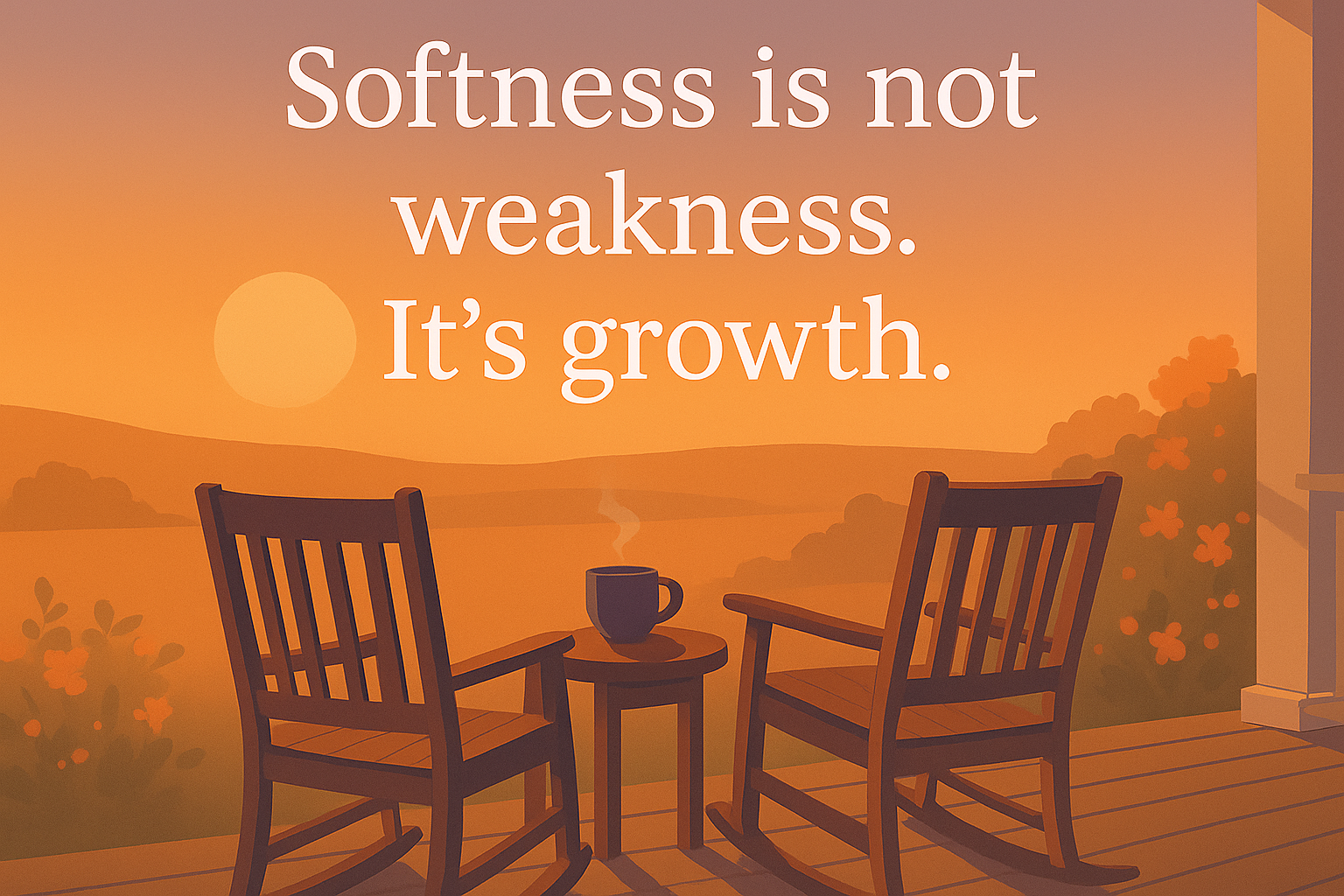Lately, I've been thinking about how I respond to people and situations. Have had comments like,
"You're getting soft."
"Why are you still replying with kindness?"
And honestly, for a moment, I wondered: is this true?
Am I really getting softer? Or am I just becoming more grown?
You see when you've been used to chaotic or toxic environments and relationships that are reactive, unsafe, and inconsistent, peace can feel boring. Healthy love can feel suspicious. Respectful communication can feel fake. But the truth is, those feelings come from habit, not reality.
When your nervous system is trained for survival, calm feels unnatural. You're used to operating from a place of fear, defence, or control. And now, when you're asked to operate from a place of balance and intentionality, it feels foreign.
That's what's happening to me.
Learning to Build, Not Just Survive
I've started to speak to someone romantically recently, but this isn't just about romance. It's about friendships, family, and even my relationship with myself. For the first time, I feel like I'm learning to build relationships, not just survive them.
And it's not easy.
Healthy relationships ask something deeper of you.
They don't run on autopilot. They require conscious effort. You have to think before you speak. You have to reflect instead of react. You have to regulate your emotions instead of dumping them on others or bottling them up.
It's about saying, "This is what I need," without manipulation or testing someone's love for you.
In Toxic Dynamics
Impulse and emotion drive things. There's often fear underneath the surface; fear of abandonment, of not being enough, of being misunderstood. So, we overcompensate, generalize, and polarize. We're either hot or cold, attached or avoidant, all in or all out.
In Healthy Relationships
You have to use your wise mind, the part of you that balances logic and emotion. You're more flexible in your thinking. You allow room for disagreement without taking it as a threat. You know that conflict doesn't equal incompatibility.
You can sit with discomfort, talk things through, and still feel safe.
Beautiful Discoveries
And here's something beautiful I've discovered:
- You don't have to "test" love in a healthy space. You just live in it.
- You don't have to wonder if your needs are too much. You just express them.
- You don't have to be perfect to be loved. You just have to be honest.
That doesn't mean it's easy. In fact, it can feel more exhausting at first because you're doing it consciously. You're undoing old patterns and building new ones. Your brain is literally rewiring itself, creating new pathways that regulate emotions and promote healthy communication, which is your new norm.
And yes, that can feel tiring because it's work, growth, and emotional labor.
But it's also healing.
The Work of Growth
I'm learning how to hold space for both myself and others. I'm practising skills I never really had to use in survival mode: distress tolerance, emotional regulation, and interpersonal effectiveness. I'm learning that "making someone right" doesn't mean I'm wrong. It just means we're both human.
More than anything, I'm learning to stop running from healthy connections—the ones that challenge me to be better, show up differently, and love deeper. Because those relationships are not threatening—they are refining.
So no, I'm not just getting soft.
I'm getting more grounded.
More patient.
More discerning.
More intentional.
And if that looks soft to the outside world, I'll wear it with pride.
Because I've lived through the chaos. I've known the toxicity. I've mastered survival.
But now, I'm learning to live.
With love and intentionality,
Mo ✨
